The Small Bow is funded entirely out of the pockets of paying subscribers. We don’t take advertisements or sponsorships, we use your money to help pay for all our freelancers and Edith’s illustrations. Our newsletter is for people who have substance misuse issues or struggle with mental health, but our stories have a far greater reach than that. TSB is for the unlucky and the unlovable. The ugly and the lost. And if you’re undecided—it’s whatever you need it to be.
If our newsletter has helped you feel less wicked and alone, less shitty or afraid, then please consider financially supporting us. Subscribers get access to the entire archive, the Sunday essay, the entire recommendations roundup, and the complete rundown of my weekly program. Seriously—thank you for letting us be part of your recovery.
If you can even remember that long ago, the internet declared 2016 “The Worst Year Ever.” There were more mass shootings, and we were at the early stages of terrifying political upheaval. The latest climate reports had made it clear that unless the entire living population made drastic, immediate changes, the Earth would be uninhabitable, maybe sooner than everyone thought. But what sticks out in my memory comes from late December, when Carrie Fisher had a medical emergency aboard her commercial flight where, upon landing, she was rushed to a hospital and immediately placed on a ventilator. Someone on Twitter had written something like, "Don't you DARE take away Carrie Fisher from us, 2016!!!!" But 2016, quickly and without any concerns for this person’s well-being, took Carrie Fisher away from everyone on December 27 of that cursed year.
You might remember that Maggie Smith's "Good Bones" was named the official poem of 2016, with those killer lines that temporarily removed the bleakness from everyone’s life.
Any decent realtor,
walking you through a real shithole, chirps on
about good bones: This place could be beautiful,
right? You could make this place beautiful.
The message was clear: the world was a shithole, but maybe don't give up on the hope and the promise of a more livable situation.
A crucial moment in how I approached the shithole world occurred in August of 2017. Our first son was two months old, and I wasn't working at all, but I was relatively fine with that since he was healthy and smiling and pudgy and smelly, and that’s all that mattered most days. But to feel somewhat professionally productive, I'd go over to the House of Pies on Vermont Avenue and order a giant breakfast, a pot of coffee, and some not-so-good pie as I scribbled down notes from Meditations and outlined an early book proposal.
When I looked up from my pie, there was President Trump on CNN addressing the tragedy at the Unite the Right rally in Charlottesville, saying upsetting, polarizing things that were shocking but also unsurprising. I remember thinking how Twitter must be uniquely terrible at that moment and then trying to hurry out of there so I could get home and read more about the upsetting things, perhaps offering my opinion about the upsetting things. If I didn't post something about it, people on my Instagram feed might judge me harshly. Maybe I should postpone my life until the upsetting things stopped.
But instead, I decided right then that, in order to be a decent parent, I needed to focus on trying to be a better human—the more emotionally sober version of me—and to achieve that, I had to make better choices with my time. The next morning, I began the earliest version of what has since become my regular routine.
One of the earliest books I dove into was Pema Chödrön's When Things Fall Apart, paying special attention to the chapter titled "Hopelessness and Death," which spelled out to me why the current shithole was swallowing me alive. According to Pema, hopelessness was a valuable tool in working through life's inevitable horrors—the realization that those horrors will happen to all of us—and therefore, it is our responsibility to take whatever comes head-on. Because most of us, it turns out, are too addicted to hope.
"A society based on lots of people addicted to getting ground under their feet is not a very compassionate place."
That sealed it for me: I needed less hope in my life.
*****
In 2019, about a year after I'd launched TSB, I began to receive some disorienting, complimentary emails from a high-profile member of a conservative media organization. Even though this person was not sober, he was impressed by my transformation. “I am genuinely interested and supportive of your journey!” (I was annoyed he said, “your journey,” but he apologized for it before I had the chance to shred him for being such a tool.)
And anytime I wrote about my father, he would always send me a particularly kind email.
"Beyond excellent column today.
Even with the Republican jab.
Haha."
He often asked me if he could help promote TSB. He would do it on his social media, or I could even appear on his podcast if I wanted to. "No thanks!" I'd respond. "And you know why!"
But between 2020 and 2021, even these small interactions felt fraught—like I was betraying my humanity, especially during the pandemic. And then came January 6. I needed to choose which side of history I wanted to be on. I picked one and encouraged this person to quit their job. Or, at the very least, to keep their heart open even though Trump lost the election. "Please try not to be a jerk! Be a force for good!"
Things stayed the same, though: he had his beliefs and a job to do, and I had mine.
In the fall of 2023, he asked to talk to me on the phone, off the record. He'd realized that drinking and drugs had taken over his life more significantly than he'd initially suspected. A change was needed. Our first human phone conversation was very jokey, more of a feeling-out process on how our fellowshipping could potentially work. His voice sounded hoarse, but his spirits seemed up. He was still determining whether this lifestyle change would stick. Still, he was committed to working a program in the meantime. So he did in-person meetings, he found a sponsor, and he did step work. All that was asked, all that was suggested, he did. He had begun his own journey.
Throughout the past year, we checked in more frequently. His voice became less hoarse, and his spirits were higher as he approached all the relevant milestones—60 days, then 90, then six months. After each milestone, I'd sometimes make a snide remark, hinting that his new sobriety might turn him into a Democrat and that I could hear his angel wings growing more after each time we spoke.
A couple of weeks ago, after he reached another significant milestone, I made a crack about what happens after he hits One Year. It was some unoriginal dig about how he would need to throw his full support behind Biden and that he would have to quit his job immediately and tell everyone Trump lost the election in 2020. He laughed it off, as usual, but I was annoyed with myself: I wasn't being a good sober support system for him. In a way, I was being bad at my job.
I called him back and made an amends for all the remarks. He never gave me a hard time about me being stridently anti-everything he was. I also wanted him to know that if the election didn't go my way, he could still call me no matter what. "Your sobriety is important to me and to others." This felt like a significant shift and that there was something bigger happening here.
*****
I've had a few other semi-famous people reach out to me about my sobriety, hearing about it either through this newsletter or this podcast interview. They'll hit me with something like, "I got 26 years in November!" I'm always surprised, especially when it's an actor or another media person. And any time I have asked them why they didn't go public with their sobriety, it's always the same response—either the traditions or the value of anonymity. Or, and this is most common, that it's nobody's business, except, of course, the next alcoholic who needs help. But you know it's weird—I'm jealous of those people, the ones who've managed to maintain their anonymity for decades and never let it go anywhere beyond their attendance in AA rooms. That sounds more genuine and more valuable than the noisy, self-seeking version of sobriety that I possess. Also—freeing?
A writer I know, who, even after more than 20 years of sobriety, has never written about it or talked about it publicly, said it was more of a personal choice than a spiritual one.
"I always felt like the "egomaniac with an inferiority complex" thing was true about me and since I can't really change myself I just try not to do things that would feed into me being all focused on myself and that includes writing about myself and my sobriety. I'm always happy to talk about it to anyone who asks but I try to not turn it into content."
As someone who's turned practically every second of their sobriety into content, I was not offended. His way makes sense. But for me, being publicly sober has enhanced my ability to be of service to many people, many of whom I would probably never connect with had it not been for The Small Bow. I'd be too afraid to do it. The version of me that ends up in this newsletter is, more often than not, the person I aspire to be. I'm more self-assured here. I'm more compassionate, I think.
One day, maybe I'll realize that my ego has finally weighed me down enough, and it's time to let it go. I eventually have to learn to live without it—that’s what all this work is for. I forget that sometimes.
But that day is not today. Today, I have 8 years of sobriety. And somehow, even after everything that’s happened and the worst that’s yet to come, I have decided to abandon hope no longer. It’s the least I can do.
This is The Small Bow newsletter. It is mainly written and edited by A.J. Daulerio. And Edith Zimmerman always illustrates it. We send it out every Tuesday and Friday.
You can also get a Sunday issue for $8 a month or $60 per year. The Sunday issue is a recovery bonanza full of gratitude lists, a study guide to my daily recovery routines, a poem I like, and more exclusive essays. You also get commenting privileges!
If you would like to make a one-time or monthly donation to support the TSB podcast press this button.
Or if you like someone an awful lot, you can give them a subscription.
Thank you so much for your support! If you want more of Edith’s illustrations, follow us on Instagram.
DEPARTMENT OF MERCHANDISING AND BRAND-BUILDING
(Mug owner who could be you = Joan As Police Woman)
Buy a mug to drink out of during our Zoom meetings. On that note…
ZOOM MEETING SCHEDULE
Monday: 5:30 p.m. PT/ 8:30 p.m ET
Wednesday: 10 a.m. PT/1 p.m. ET
Thursday: (Women and non-binary meeting) 10 a.m. PT/1 p.m. ET
Friday: 10 a.m. PT/1 p.m. ET
Saturday: Mental Health Focus (Peer support for bipolar/anxiety/depression) 9:30 a.m. PT/12:30 p.m. ET
Sunday: (Mental Health and Sobriety Support Group) 1:00 p.m PT/4 p.m. ET
*****
If you don't feel comfortable calling yourself an "alcoholic," that's fine. If you have issues with sex, food, drugs, DEBT, codependency, love, loneliness, depression, come on in. Newcomers are especially welcome.
FORMAT: CROSSTALK, TOPIC MEETING
We're there for an hour, sometimes more. We'd love to have you.
Meeting ID: 874 2568 6609
PASSWORD TO ZOOM: nickfoles
A POEM ON THE WAY OUT:
Poem in Thanks
by Thomas Lux
***********************
Lord Whoever, thank you for this air
I'm about to in- and exhale, this hutch
in the woods, the wood for fire,
the light–––both lamp and the natural stuff
of leaf-black fern, and wing.
For the piano, the shovel
for ashes, the moth-gnawed
blankets, the stone-cold water
stone-cold: thank you.
Thank you, Lord, coming for
to carry me here–––where I'll gnash
it out, Lord, where I'll calm
and work, Lord, thank you
for the goddamn birds singing!
ALL ILLUSTRATIONS BY EDITH ZIMMERMAN




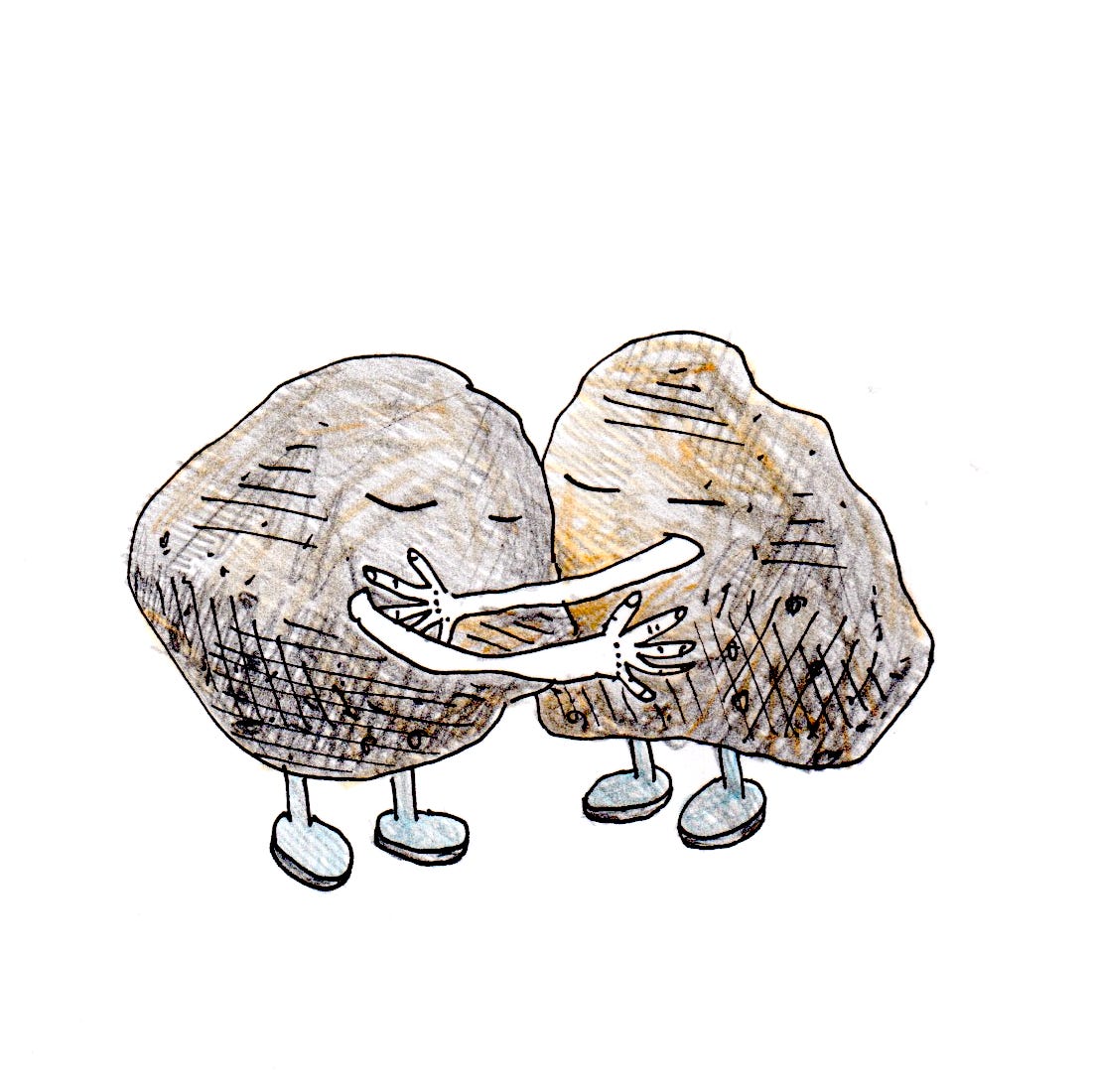
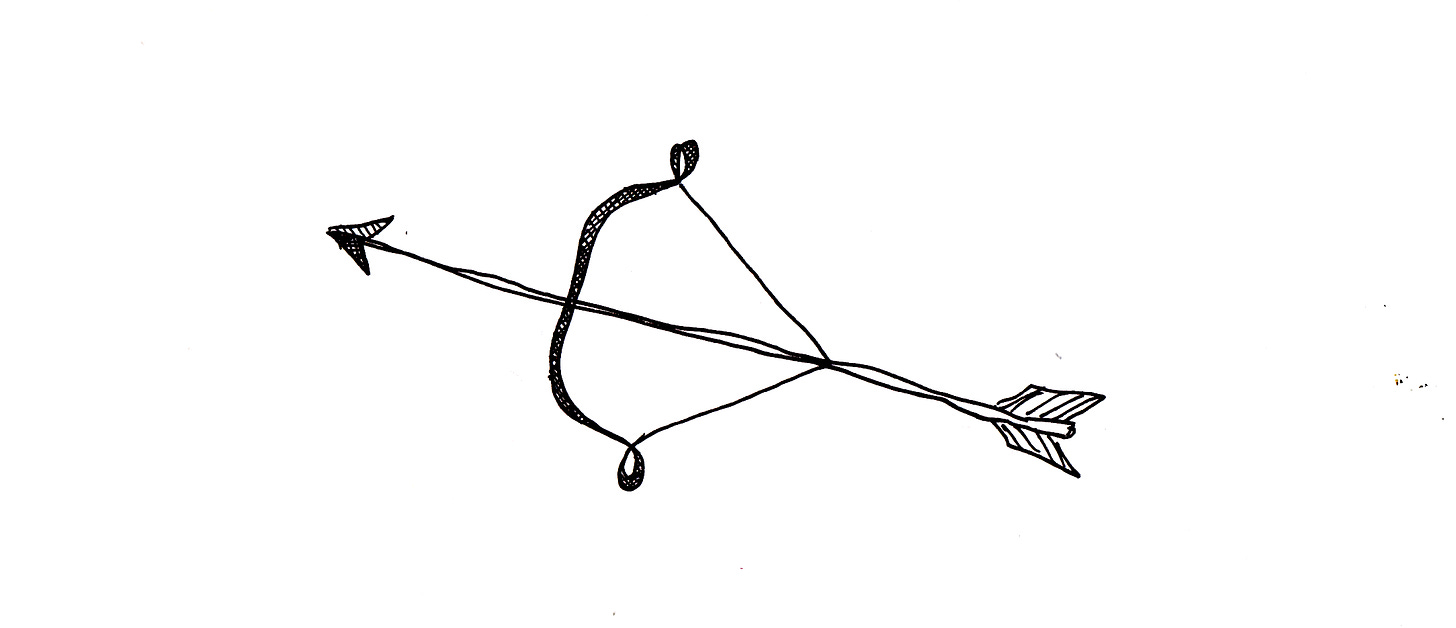
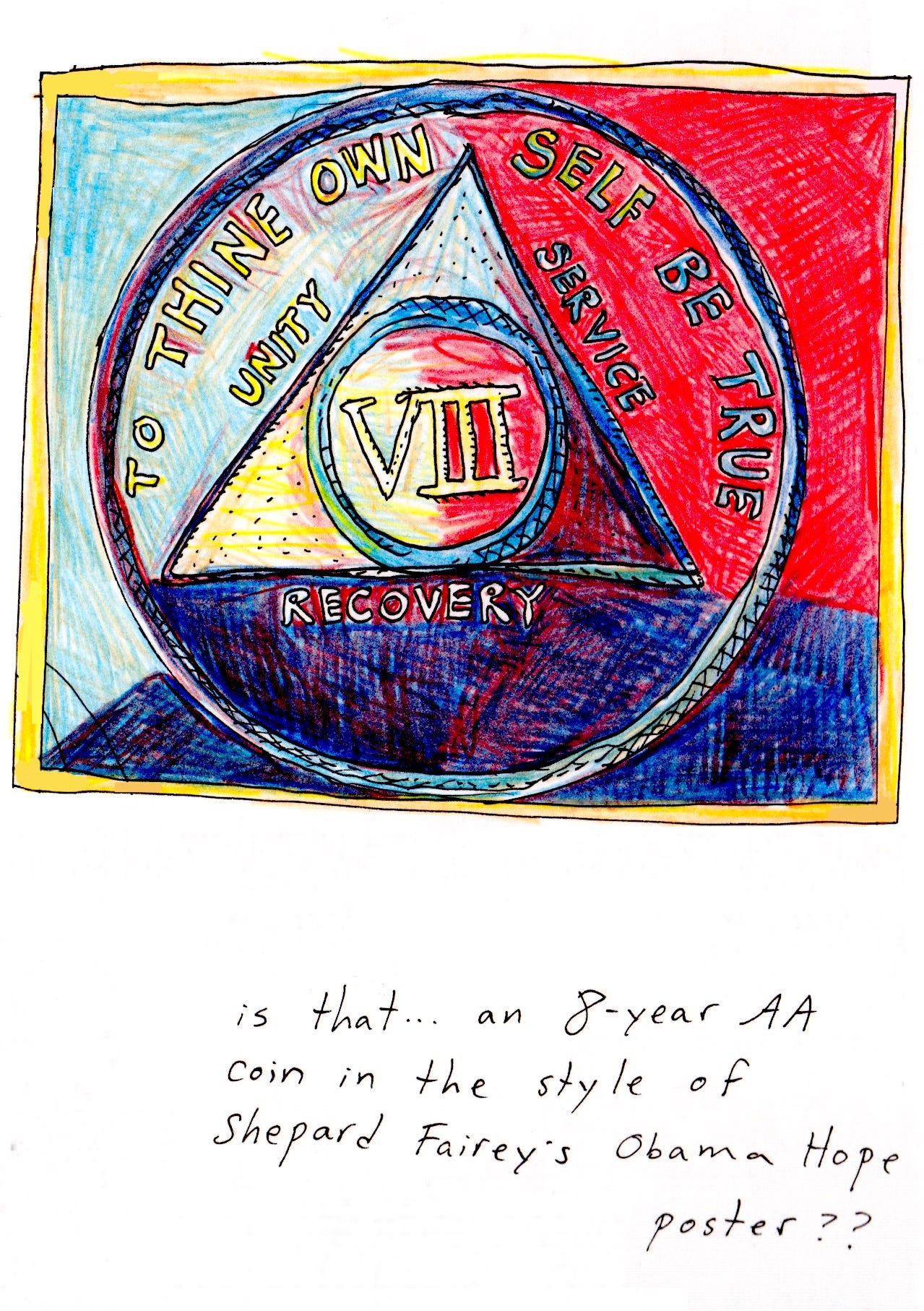
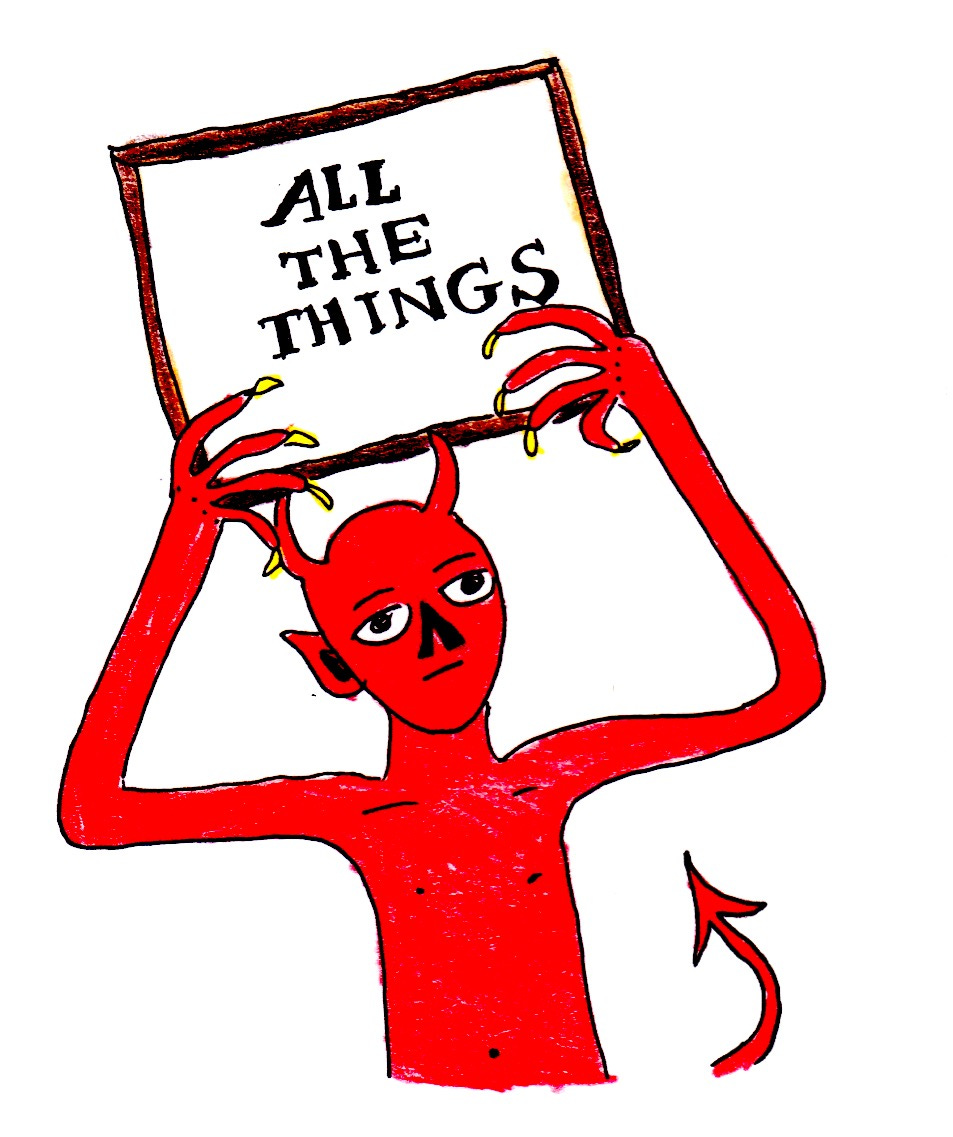
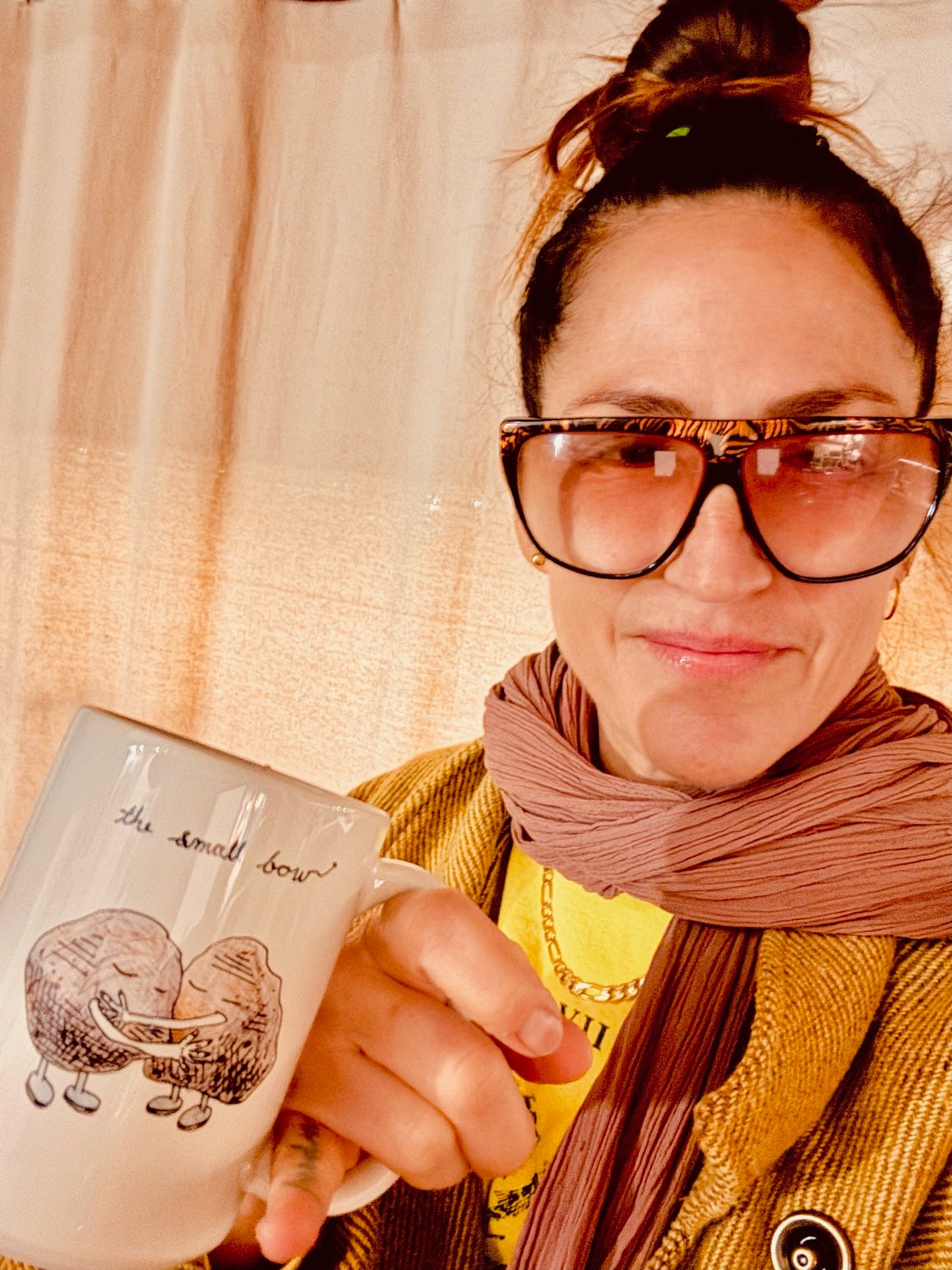
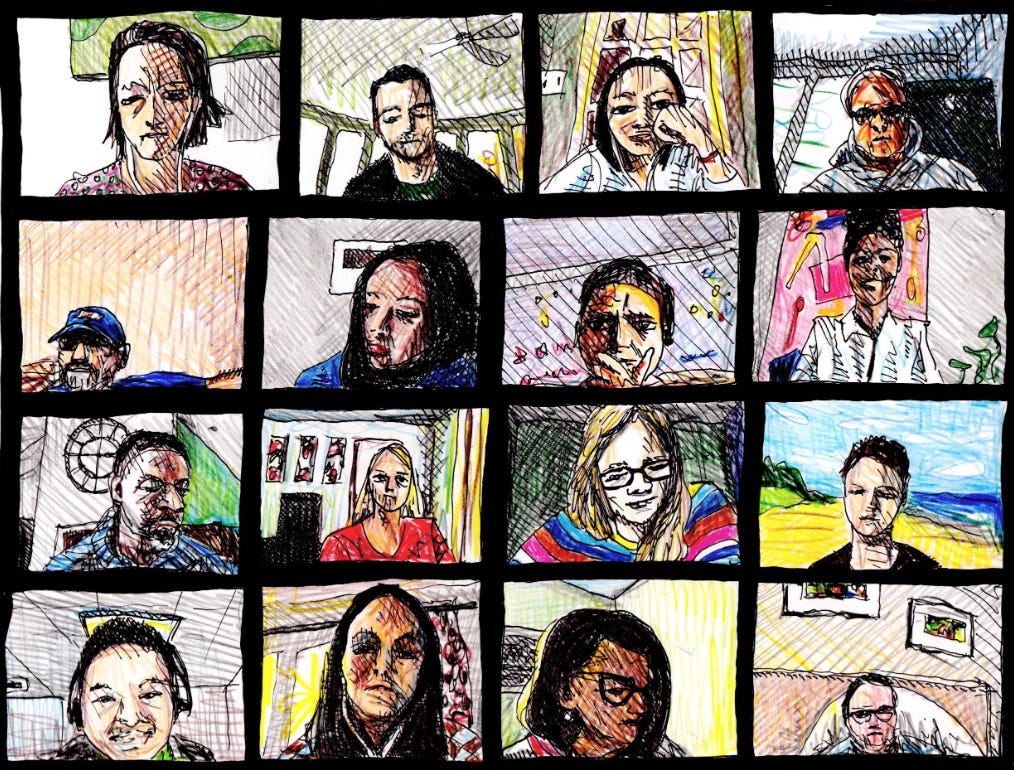
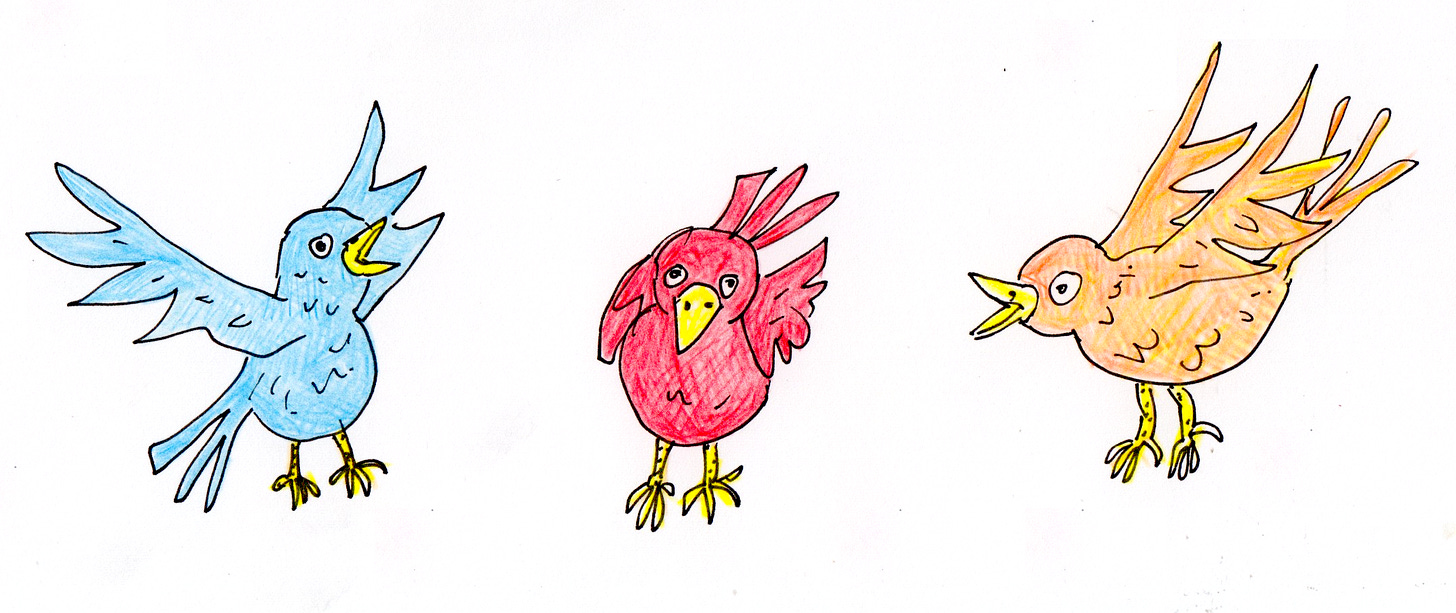
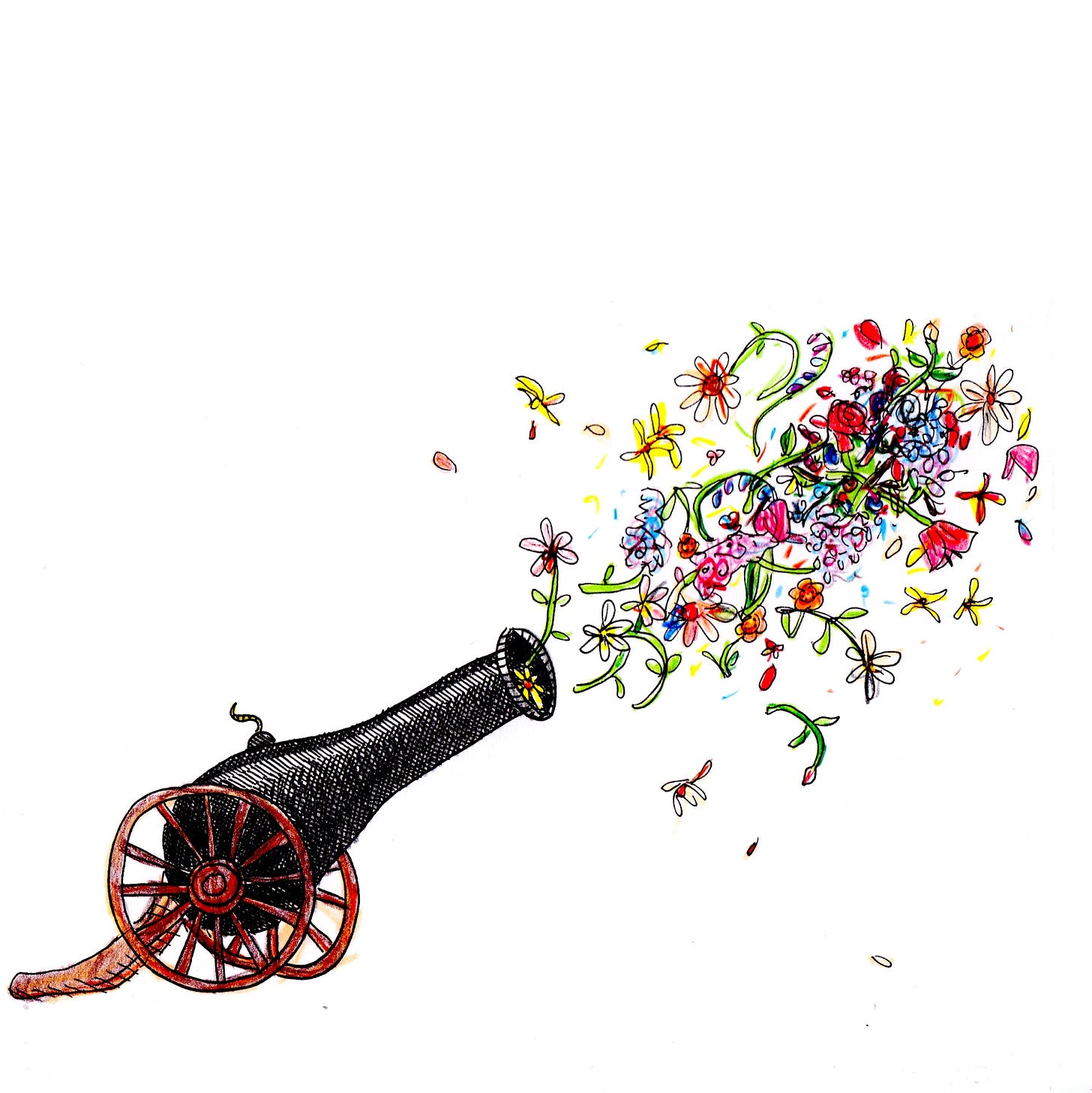
I love this post! I understand the value of anonymity. I had to really explore what that means to me when I started my newsletter. One of my topics is my 12 step recovery from eating disorders. I never name my program, on the advice of people who have more time in recovery. I'm not willing to be completely anonymous, because my writing about my experience can give other people hope. Some have reached out to me privately, and I share more openly. I love being able to say to my readers that recovery is possible. What a gift. Thanks for being here.
Super congrats on 8 years!! Thank you for sharing your story through all the highs and lows, you're a true inspiration!